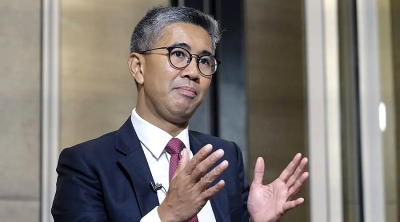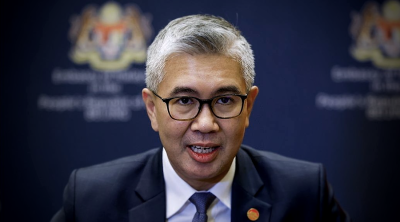Finance minister Tengku Zafrul issued the first ever pre-budget statement (PBS) in the country’s history on Tuesday, saying he will table the 2022 Budget at Dewan Rakyat on October 29. The Budget will stress on the livelihoods of Malaysians and local businesses post-pandemic to ensure that no one will be left behind by the government’s assistance programs.
This is the first time the finance ministry has issued a PBS before tabling the Budget. The ministry will collect feedback and suggestions from various departments through interactions and consultations. These will serve as a reference for the ministry in drawing up the Budget for the next fiscal year to make sure it will be more inclusive to satisfy the needs of the people as well as the country’s policies while promoting the “Malaysian Family” concept.
The finance minister said next year’s Budget will be based on the 12th Malaysia Plan and the Shared Prosperity Vision 2030. The 12MP will mark the first phase of the SPV 2030, and as such Budget 2022 will be based on the priorities of 12MP.
The Vision and Plan mentioned by Tengku Zafrul were actually mooted by former prime ministers Tun Mahathir Mohamad and Tan Sri Muhyiddin Yassin mainly to make Malaysia a country where the people from different ethnic backgrounds and areas will be able to enjoy stable incomes, the country will continue to grow sustainably and the resources are fairly distributed to the people.
Ismail Sabri’s administration does not reject the country’s long-term development directions set out by his predecessors. This shows that even with a change in leadership, existing policies will continue to be implemented in conformity to the democratic spirit and the country’s medium- to long-term strategic development goals (SDGs).
To spearhead the national recovery plan post-pandemic, the government will likely increase the statutory debt ceiling to provide for expanded fiscal space.
Last August, through increasing the ratio of the country’s debts to GDP from 55% to 60%, the government has upped its debt level to 56.8% of the GDP as of June this year, still short of the 60% statutory ceiling.

The total sum of Budget 2021 was RM322.54 billion but the government’s revenue was only RM236.9 billion. This translates to RM85.6 billion of budgetary deficit, or 6% of GDP, the highest in the country’s history.
In last year’s Budget, RM236.5 billion was set aside for government remunerations and administrative expenditures to service interests from external loans., making up 73.3% of the total, while the remaining 21.4% or approximately RM69 billion was for actual development purposes.
Due to the pandemic, it is very hard for the government to improve on the massive administrative expenditures that will make up 73% of the Budget as well as the government’s revenue in 2022, with only around RM70 billion available for development purposes.
Tengku Zafrul pointed out that next year’s budgetary deficit will likely be between 6.5% and 7% of the country’s GDP, which we would estimate at around RM100 billion, or RM15 billion more than last year.
To fill up the gap, the government can only increase its revenue while cutting down on unnecessary expenses. However, due to the massive civil service, foreign debts and interests, it is unlikely that administrative expenditures could be effectively reduced. And sure enough this shortfall should never be made up by slashing vital development expenditures. This makes cutting expenses to cap the budgetary deficit not really practical.
To increase revenue, the government may have to increase the tax rates and plug the tax evasion loopholes.
This problem can never be solved unless we do something about the excessively bloated civil service.
The 2022 Budget will likely continue to focus on taking care of the well-being of the rakyat, sustained development of local businesses and stimulating the country’s economic recovery.
Over the past one year, the government has released several batches of financial assistances to the people affected by the coronavirus pandemic, subsidies for micro businesses and early EPF withdrawals for members. All these packages sum up to the tunes of tens of billions of ringgit to momentarily relieve the burden of millions of Malaysian families as well as local businesses badly hit by the pandemic.
ADVERTISEMENT
ADVERTISEMENT






































